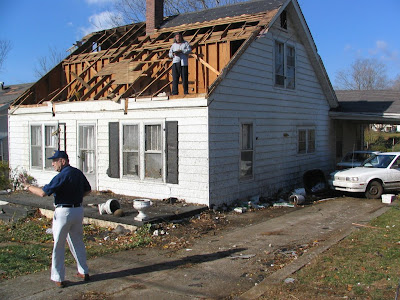 Claims for freak household disasters are nothing new but if something like this happens to a householder, too often they fear the response from an insurer. They worry that it will be up to the policyholder to prove that a little green man was responsible. ‘Act of god’! More like ‘Act of Alien’!
Claims for freak household disasters are nothing new but if something like this happens to a householder, too often they fear the response from an insurer. They worry that it will be up to the policyholder to prove that a little green man was responsible. ‘Act of god’! More like ‘Act of Alien’!What if a meteorite was to strike my house?
How about a stampede of wildebeest on the run from a local safari park?
What if a vindictive ex-husband bulldozes my home to the ground?
How about if a shark fell through my roof?
 British motorists made claims last year for everything from a frozen squirrel crashing through a car windshield to a cow jumping on a quad bike, an insurance company said. Freak accidents involving animals topped the list of odd excuses for motor insurance claims with food-related mishaps in second place.
British motorists made claims last year for everything from a frozen squirrel crashing through a car windshield to a cow jumping on a quad bike, an insurance company said. Freak accidents involving animals topped the list of odd excuses for motor insurance claims with food-related mishaps in second place."We see a lot of strange claims but we were surprised at how many involved animals and food, of all things," said Sally Leeman of Norwich Union, one of the country's biggest insurance providers. "We can hardly tell drivers to beware of flying kebabs and frozen squirrels when they're on the roads but this shows how important it is to be aware of what's going on around you at all times."
The top 10 motor insurance claims were:
"The car was parked when a reindeer fell on the bonnet of my car."
"As I was driving round a bend, one of the doors opened and a frozen kebab flew out, hitting and damaging a passing car."
"A herd of cows licked my car and caused damage to the paintwork."
"A zebra collided with my car when I was at a safari park."
"While I was waiting at traffic lights, a wasp went down my trouser leg which made me hit the accelerator and prang the car in front."
"I couldn't brake because a potato was lodged behind the brake."
"My parked car was hit by a bull which had escaped from an agricultural show."
"A cow jumped on my quad bike."
"As I came over the hill, I hit a cow in the middle of the road, which then hit the bonnet and shattered the windscreen with its rear end."

